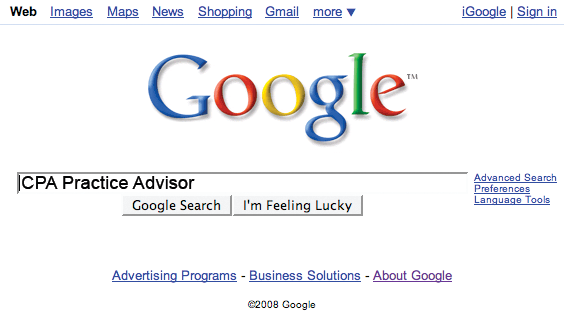Google has long been the undisputed default search engine, far exceeding competitors like Yahoo!, Bing and an assortment of lesser known websites. But just as Google’s search functionality is mimicked or outright plagiarized (imitation being flattery, of sorts), the company faces challenges similar to those faced by Microsoft and giant corporations in other industries.
That is, the bigger a company, the bigger the target it makes, and as one of the largest technology companies in the world, Google is often at the heart of technology debates. Particularly with regard to how user data is stored and shared with other companies, as well as in how it performs and presents searches with sponsored listings included. Then there are the people who criticize Google for potentially (at least in their view) infringing on copyright and intellectual property rights via Google Books.
These are only a few of the complaints, justified or not, that the company faces. (A search for “why I hate Google” returns 170,000 hits… on Google.) Nevertheless, it remains by far the most successful search utility, and the addition of Google Apps, Maps, Google+ (which hasn’t really caught on), and several acquisitions has made the company’s services more and more of a daily resource for hundreds of millions of people around the world. It’s also likely that many of these Google naysayers continue to use various apps from the company because, well, most people resist change.
While I’ve never really loved Google, I am not one of the “hate Google” people. However, I am falling out of like with them, and it’s not because of any of the above issues. It’s about their core function: Search. Despite being the ubiquitous search tool and earning a place in our language (nobody Yahoos or Bings something, but most of us Google something daily), my biggest fault with Google has been what I see as a decline in its actual search functionality over the past few years.
The Dumbing Down of Search
Google’s search functionality has declined, but has likely only been noticed by more experienced and skilled searchers. That’s because the search methodology that has been the standard for computers and the Internet for the past 18 years has been removed from Google. The Boolean (advanced) search technique is simply a way of using the and or minus symbols and quotation marks to tell the search engine more specifically what you’re looking for.
For instance, simply typing in Treasury Regulations 7216 disclosure results in 667,000 results. That’s good, but too many to be useful unless you get lucky, because all the search engine is really doing is searching is any document with some (not necessarily all) of the words mentioned, and in any order. If you’re just surfing, perhaps that’s enough, but not if you’re looking for something very specific. With an advanced search of +“Treasury Regulations” +7216 +disclosure, (including the + symbol and quotation marks), you are telling a search engine that you only want documents that contain the exact phrase “Treasury Regulations” and also 7216 and the word disclosure.
With the dumbing down of Google’s search engine, this traditional advanced search method is no longer supported. A search using the above example with quotation marks and plus symbols will result in zero hits in Google. Most other leading search engines still support the method, however. Using that search on Yahoo! Returns 6,830 hits; on Bing it returns 7,620. You could narrow these down even further with additional “must-have” words and phrases, such as consent, penalty or CPA or EA.
Why Did Google Do This?
This was a strategic move on the part of Google, the goal being to make web searches easier for people who aren’t good at searching. While that’s a good thing, I think they should have handled it differently. Surprisingly, college students are among the worst when it comes to effective search engine use.
Several recent studies (http://tinyurl.com/3hhvv2u) have shown that, although the under 25 age range has grown up with computing technology and are native users of online tools from before many can even walk, this doesn’t equate to knowing how to use those same technologies for actual work. In short, they are having to learn how to use their gadgets as tools instead of toys. Whereas older tech-savvy users have long adopted these technologies with a goal of productivity.
The younger market is, of course, the primary target for most technology companies, so engineers and developers have long aimed to make computers and programs more user friendly, but unfortunately, by making search engines think like humans, they are basically just dumbing down the systems.
Yes, there are other search functions in Google and an advanced search page, but Google’s abandonment of the standard advanced search methodology used across all search engines for 18 years is the prime example.The developers didn’t even leave it in as an option. Which means that users will either have to learn multiple search techniques for every different search engine they use, or as Google may be hoping, the users will grow used to only the Google way, relying only upon the single search engine.
Thanks for reading CPA Practice Advisor!
Subscribe Already registered? Log In
Need more information? Read the FAQs




